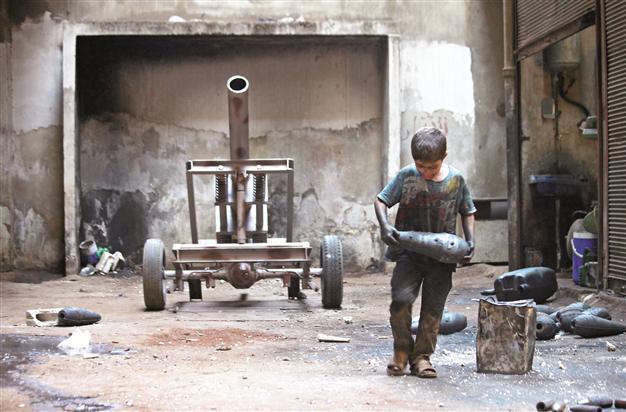Turkish firms warned over trade with ‘politically sensitive countries’
Erdinç ÇELİKKAN ANKARA - Hürriyet

A boy carries a mortar shell in a seized factory in Aleppo. The Turkish Economy Ministry has asked businessmen to inform the government before engagin in any commcercial ties with ‘politically sensitive countries.' REUTERS Photo
The Economy Ministry has warned Turkish businessmen over commercial contacts with “politically sensitive countries,” sending out a letter urging them to inform the ministry about their visits to those nations.In the circular sent through industrial and commercial chambers, the ministry asked companies to inform the government about any contacts that will be had in the forming of trade alliances in such countries.
“It would be appropriate to organize visits to certain politically sensitive countries according to ministry directives, and for guests from these countries to be invited likewise,” the statement read.
“Bilateral visits should be declared to the ministry in advance and they should be coordinated by the Economy Ministry, in consultation with the Foreign Affairs Ministry,” it added.
The note does not specify which circumstances could put a country into the “politically sensitive” category, but the ministry’s warning has been interpreted as being prompted by the political struggles in Middle Eastern countries.
In particular, Turkey’s political row with Egypt and the violence in neighboring Syria and Iraq have affected Turkish companies’ business in these countries. A number of Turkish companies halted their operations until the end of violence that erupted in Egypt after the ousting of former President Mohamed Morsi. However, despite months of strained Cairo-Ankara relations, Turkish investors have maintained their positions in Egypt and have yet to announce any major exit from the country.
Many Turkish contractors have also been forced to abandon projects worth billions of dollars due to violence in Libya.
















